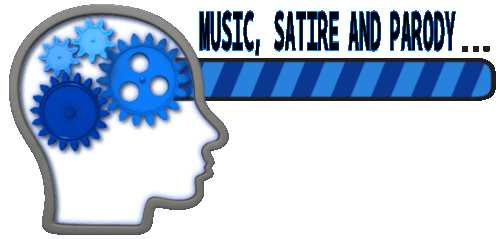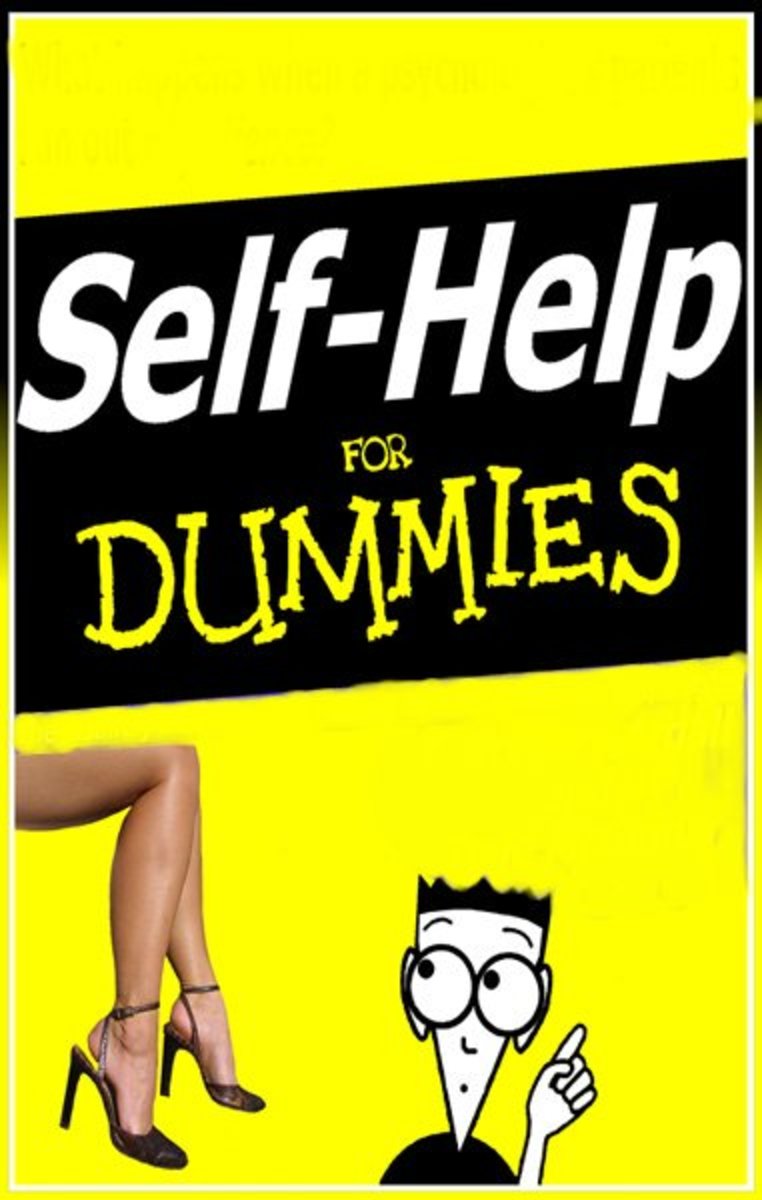- HubPages»
- Books, Literature, and Writing»
- Commercial & Creative Writing»
- Creative Writing»
- Humor Writing
Music and Parody

Musical Parody and Satire
The concepts of parody and satire have been used in a written format via literature and journalism for several centuries. With the presence of court jesters and musicians who mocked their culture, it is possible that a musical version of parodies and satires preceded the written versions. Either with or without the use of writing and music, parody and satire have a long history and continue to be widespread in today's entertainment and information marketplace.
People say satire is dead. It's not dead; it's alive and living in the White House.
— Robin WilliamsQuestions (and Answers) About Parody and Satire
Parody and satire both involve humor and are often used (incorrectly) as interchangeable terms. In general a parody tends to make fun of less serious matters while a satire will usually focus on more important issues. While both involve the mockery of people, culture and institutions, satire is known for going much further by taking a position that advocates some form of political and societal change.
Several musical videos are shown below in order to offer contemporary examples of satire and parody. As you will see and hear, there might not be universal agreement about whether these videos represent parody or satire or both. Whether you judge them to be satires or parodies will probably depend on your personal viewpoint.
Zombie Banks: Parody or Satire?
A Book About Banksters
One of the truly productive benefits of satire and parody is the ability to introduce new concepts like "Zombie Banks" to your everyday vocabulary. In a vivid example of life imitating art, some of the most outrageous examples of what banks and bankers have done are absolutely true and described in "The Best Way to Rob a Bank Is to Own One." The term "Zombie Banks" was first used to describe savings and loan banking institutions during the S&L crisis of the 1980s. Bill Black will tell you everything you want to know and more.
What Are Zombie Banks?
The parody/satire shown above features a "Zombie Bank," and many viewers probably are not familiar with this term. The description appears to have originated during the savings and loan crisis during the 1980s and referred to financial institutions that had a negative net worth because their liabilities exceeded their assets. Despite the fact that they had a value less than zero, these savings banks were essentially kept alive artificially by government funding and credit support.
In the current financial crisis, "Zombie Banks" and "Dead Banks Walking" emerged as a relevant description for many banks because their liabilities exceeded assets by significant amounts. As you might imagine, this is not a good position for a bank to be in, but there really are Zombie Banks that justify having a satire/parody to illustrate the problem.
Bearish: Satire or Parody?
Econoparody
The music video shown above ("Bearish") is described on versusplus as an econoparody that should be viewed as a specialized form of parody featuring the economy, economics and financial markets. Whether we like it or not, finance and economics are forcing their way into our daily lives on a regular basis. With a little help from econoparodies, we can learn and be entertained at the same time.
Parody and Transformed New Work
Here is a relevant observation that provides some further explanation about parody from versusplus:
"....a parodist can use someone else’s original work for the purpose of humor, ridicule, comment or the like, if the parody creates a transformed new work. A parody can use the character and characteristics of the original -- indeed, must use them -- both to make a clear association between the original and the parody and successfully to make its point."

The Value of Music and Parody
The concept of "Zombie Banks" can be used to illustrate a key value of music and parody (and satire). Before hearing and reading about Zombie Banks above, how many of you were familiar with Zombie Banks? Even if you had already heard the term, did you learn something new from the Zombie Bank video and written explanation?
There will always be some entertainment value provided by musical parodies and satires such as those included here, but learning about new subjects and potential areas of concern can transform a parody or satire into an educational masterpiece.
Crashdance: Econoparody or Econosatire?
A Goodnight Parody
When you are ready to introduce parody and satire into your children's vocabulary, "Goodnight iPad" is a top-notch candidate to consider as a visual aid. It is a superb parody of the beloved "Goodnight Moon." The author of "Goodnight iPad" has written an equally entertaining parody entitled "If You Give a Mouse an iPhone: A Cautionary Tail."
Whether we realize it or not, parodies and satires are all around us. Jon Stewart and Stephen Colbert are two leading illustrations. Should movies like "The Graduate" be viewed in the context of parody and satire?
In the spirit of "The Graduate" during which we were told that the one word to remember was "plastics," I am offering "risk and change." I not only consider that each of these words is essential to remember individually but also am concerned about the combined impact of the two acting together.
First, the speed of change has accelerated dramatically during the past 25 years thanks to technology and a global economy. Perhaps Apple and Microsoft kicked it all off in the 1980s, but instant communication with a variety of tools seems to be providing the ongoing momentum.
Second, views toward risk have changed at the same time that some legal risk restrictions have disappeared. As an example, I can't help but focus on the replacement in 1999 of the Glass-Steagall Act that had limited the amount of risk exposure by banks since the 1930s. We didn't have to wait long to see what a disaster it could be when the banking establishment was allowed to make up their own risk rules as they went along. Could we possibly have a more graphic contemporary example of the time-honored description — "The Fox Guarding the Chicken Coop" — than by letting bankers regulate the banking industry?
In a "risk and change" world, one of my favorite operating philosophies for both business and life seems likely to assume a much bigger role: Always Have a Plan B.
Zombie Banks: The Serious Side of Parody and Satire
As noted above, the entertainment purposes of satire and parody are somewhat different. But both forms of humor frequently have a serious side by conveying a message about ways in which society has left some of us surprised or disappointed.
Banks currently provide several prime examples of events that have been portrayed regularly in parodies and satires. While the "Zombie Bank" video included above is funny and entertaining, the ongoing presence of actual Zombie Banks is a continuing problem for the economy and many individuals impacted by banking difficulties.
On the other hand, parody can also deal with many other topics beyond banks and the economy. For example, the Marshmallow Test is an educational study that provided several helpful insights concerning learning and willpower. The presence of marshmallows made it an ideal candidate for a parody using adults instead of children (please see video below).
Satire is traditionally the weapon of the powerless against the powerful.
— Molly Ivins
© 2012 Stephen Bush



![Baltic Sea Anomaly Details: Is it a UFO or Hoax [video] Baltic Sea Anomaly Details: Is it a UFO or Hoax [video]](https://images.saymedia-content.com/.image/t_share/MTc2MjY0ODM3MjA1MjcxNzI1/baltic-sea-ufo-unidentified-submerged-object.jpg)

